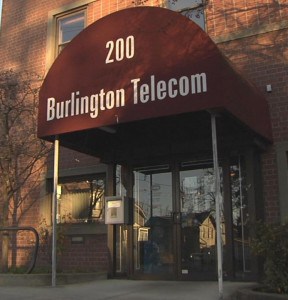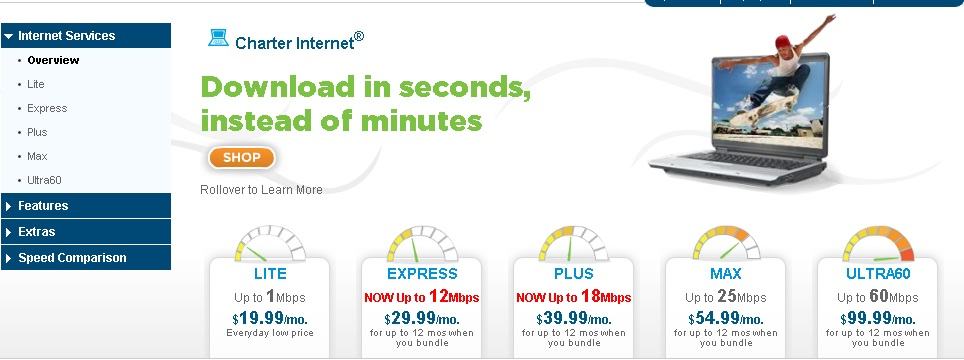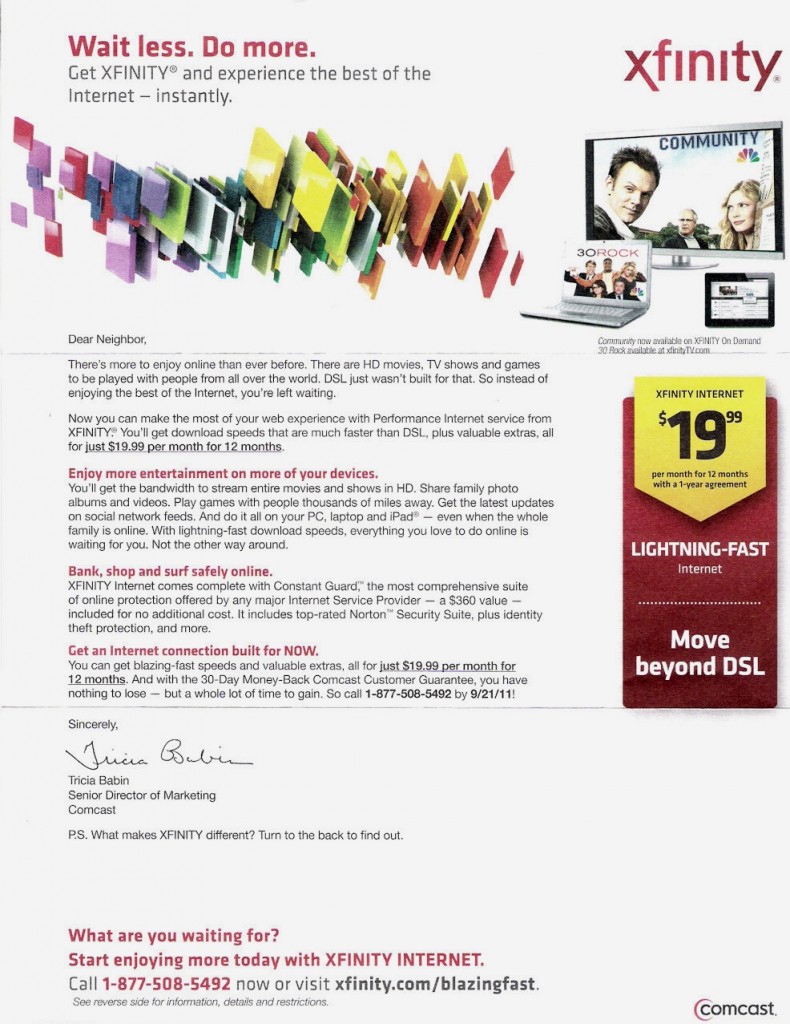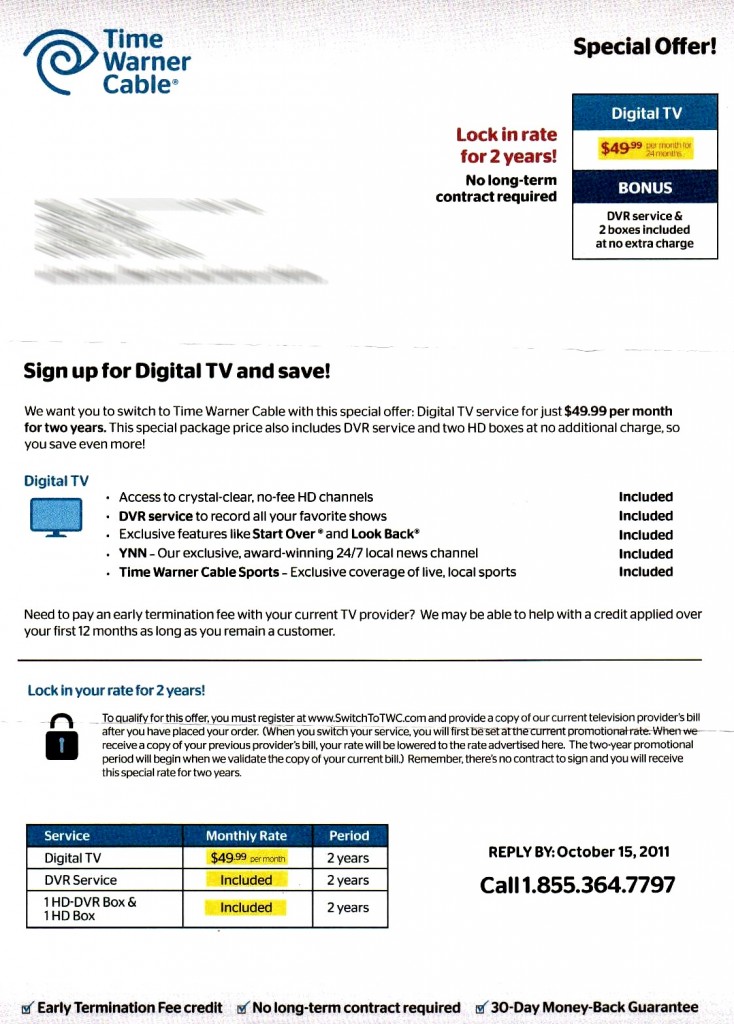Citibank has sued the city of Burlington, Vt., and the city’s legal firm demanding municipal-provider Burlington Telecom hand back their fiber-to-the-home network and pay damages in excess of $33.5 million dollars.
Citicapital, which owns the equipment that operates Burlington’s community network, says Burlington Telecom has defaulted on their lease payments, and has demanded the city “de-install and return” the fiber network — everything from set-top boxes and in-home wiring to ripping fiber cables directly out of underground vaults and off telephone poles. Citi also wants BT’s vehicle fleet turned over to them.
Burlington Telecom has been a poster child of poorly-planned and implemented city-owned broadband, and a series of financial and operational scandals led state investigators to consider criminal charges for misappropriating taxpayer funds to sustain the network. While prosecutors ultimately declined to file charges, the resulting scandal in the mayor’s office has left the city with a network it stopped paying for, and the potential much of it could be auctioned off to the highest bidder, which could turn out to be Comcast or FairPoint Communications.
Citicapital claims the city has not made a direct lease payment since November, 2009. The bank had been drawing down funds deposited in a special escrow account the city was required to open as part of the lease-to-purchase transaction. That account has also run dry, and the bank claims it has received no payments since May of 2010.
Citibank’s attorneys filed suit:
“BT continues to use Citibank’s equipment and vehicles unlawfully and without its permission and continues to depreciate the value of Citibank’s assets in order to generate revenue for itself,” the bank’s attorneys charged.
Citibank wants a judge to award punitive damages in excess of its remaining loan balance “because Burlington’s intentional breach of the agreement amounts to a reckless or wanton disregard of Citibank’s clear contractual rights.”
![]() “It’s ironic that a bank that received a taxpayer-financed multi-hundred-billion-dollar bailout now wants taxpayers in Burlington to pay them excessive damages,” shares Stop the Cap! reader and Burlington resident Joe, who shared the story with us. “I think we should be calling it even after three years of big bank bailouts.”
“It’s ironic that a bank that received a taxpayer-financed multi-hundred-billion-dollar bailout now wants taxpayers in Burlington to pay them excessive damages,” shares Stop the Cap! reader and Burlington resident Joe, who shared the story with us. “I think we should be calling it even after three years of big bank bailouts.”
The lawsuit has city residents worried because attorney fees, and any resulting damages or settlement agreement with the bank, will likely run well into the millions of dollars. Every month the city remains in arrears, Citibank’s agreement calls for at least $235,000 in missed payment fees and interest. Taxpayers will likely cover most, if not all of that amount.
“I don’t think anybody should be surprised,” City Councilor Paul Decelles, R-Ward 7 told the Burlington Free-Press. “I always believed this day was going to come. Now we have enormous mess on our hands.”
Christopher Mitchell from Community Broadband Networks notes Burlington Telecom was an aberration in a country with many successful community-owned broadband networks.
“We have watched in dismay as Burlington Telecom transitioned over the past four years from a model community network to the worst case scenario,” Mitchell wrote on the group’s blog. “This situation proves only that community networks can suffer from bad management in some of the many ways private telecom companies can suffer from bad management (resulting in anything from bankruptcy to prison).”
“Communities can learn lessons from Burlington’s situation — chief among them that transparency is important,” Mitchell observed. “As with other public enterprise funds, the operation should be regularly audited and oversight must be in place to catch errors early, when corrections are easier and less costly.”
Among Burlington Telecom’s problems included overpriced, uncompetitive broadband service that never took full advantage of fiber’s speed and versatility. Earlier news accounts included speculation BT had trouble securing sufficient connectivity with a backbone provider to sustain faster speeds, but it left the company at a competitive disadvantage against incumbent cable operator Comcast. Burlington Telecom also failed repeatedly to build community support to establish a firewall against frequent political shots fired at the network as it became a partisan hot potato.
The city promises a “vigorous defense” against the lawsuit, and observers suspect a judge will not order the city to shut the network down, because it would cease the only revenue stream the company generates that could be used to pay a negotiated settlement with the bank.
[flv width=”640″ height=”380″]http://www.phillipdampier.com/video/WCAX Burlington Citibank Sues BT 9-20-11.mp4[/flv]
WCAX in Burlington explores how much of a case Citibank has in its lawsuit against the city and its attorneys over Burlington Telecom. (4 minutes)


 Subscribe
Subscribe










